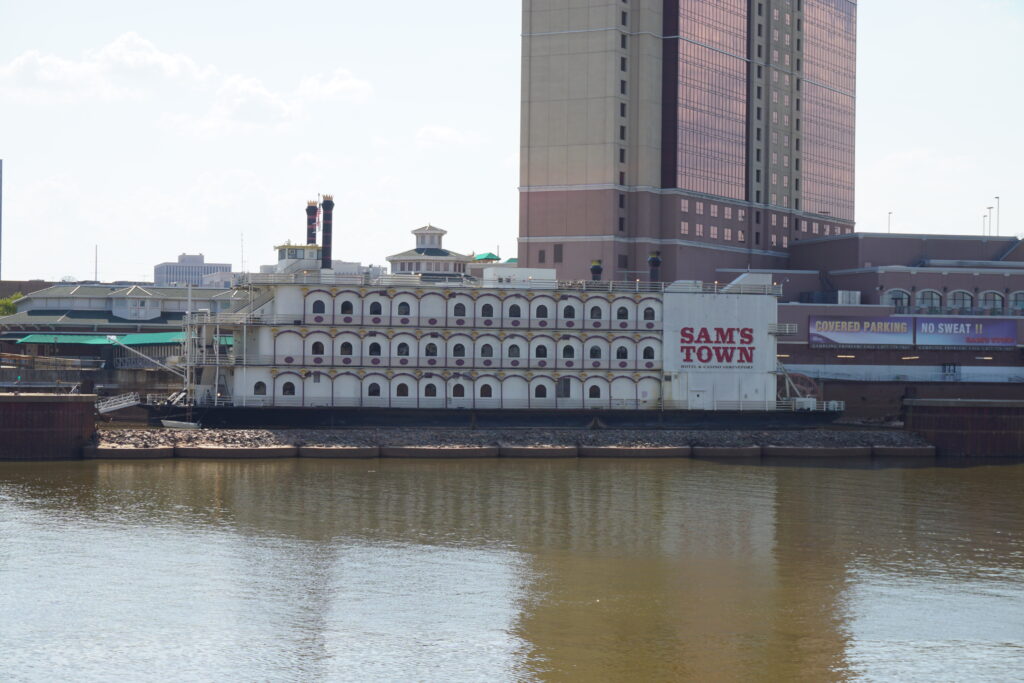The story of Tunica, Mississippi, reads like a modern fable of ambition and decline. Once among the poorest counties in America, it rose almost overnight in the 1990s to become a glittering gaming destination along the Mississippi River. Millions flocked to its casinos, and the local economy flourished. But in time, competition, changing markets, and economic shifts cooled the boom. Today, the Tunica casino story serves as both a triumph of transformation and a warning about overreliance on a single industry.
The Legal Opening of the Riverboat Era

In 1990, Mississippi legalized dockside gambling, hoping to stimulate development along its riverfront towns. Tunica County, a quiet agricultural region near Memphis, quickly became the focal point of this new gaming experiment. Within a few short years, several riverboat-style casinos opened along Casino Strip Boulevard, turning farmland into a neon-lit corridor of entertainment. The promise was clear: tourism, jobs, and tax revenue would flow as steadily as the Mississippi River itself.
Rapid Growth and Rising Expectations
By the late 1990s, Tunica’s casino scene was booming. At its height, the county hosted ten casinos, over 14,000 slot machines, and thousands of employees. The once-sleepy Delta landscape transformed into a bustling entertainment hub, complete with luxury hotels, golf courses, and concert venues. For locals, it was a miracle that the town that had been synonymous with poverty now ranked as one of America’s top gaming destinations. Tunica seemed unstoppable, its riverfront fortune growing year after year.
Signature Resorts and Their Fate

Tunica’s skyline soon featured names that rivaled Las Vegas. Harrah’s Casino Tunica, opened in 1996, boasted over a thousand rooms, massive gaming floors, and a world-class resort atmosphere. Sam’s Town, Horseshoe, and Hollywood Casino offered similar grandeur. For years, they thrived as destination resorts for travelers across the South. But as the years passed, operational costs climbed, customer bases shifted, and once-bustling hotels began to see their occupancy rates slide into worrying territory.
Increasing Competition and Market Saturation
The 2000s brought a new challenge in competition. As neighboring states legalized gambling, Tunica’s exclusivity vanished. Casinos opened closer to customers’ homes in Arkansas, Missouri, and Louisiana, cutting deeply into Tunica’s profits. The town had built its success on long-distance visitors, but convenience now ruled. Once packed, weekends turned quiet, and the charm of Tunica’s remote allure faded. The market had matured faster than it could adapt, signaling the first tremors of decline.
First Major Closures and Warning Signs
The first major blow came in 2014 when Harrah’s Casino Tunica permanently closed its doors. Once the largest casino resort between Las Vegas and Atlantic City, its shutdown shocked both residents and industry watchers. Over 1,000 employees lost their jobs, and the county’s tax revenue plunged. The closure revealed how fragile Tunica’s economy had become, dependent on a handful of massive properties with thin profit margins and limited flexibility to weather downturns in regional demand.
Cascade of Shutdowns and Market Retreat

Following Harrah’s exit, more casinos fell silent. Resorts Casino Tunica closed in 2019, followed by the Tunica Roadhouse in 2020. Each shutdown left behind empty buildings and displaced workers. The once-vibrant strip grew eerily quiet, with flickering signs and shuttered entrances marking what was left of the boom. Investors lost interest, and tourism marketing struggled to draw visitors. The casino corridor that had once symbolized prosperity now stood as a monument to overexpansion and exhaustion.
Economic and Social Reverberations

Tunica County’s economy suffered deep cuts as casino revenues fell from over $1.6 billion in the mid-2000s to less than $900 million a decade later. Thousands of workers faced layoffs, and secondary businesses restaurants, taxis, and retailers, struggled to survive. The decline hit the community hard, exposing its reliance on one fragile industry. For many residents, the casino collapse wasn’t just financial; it marked the end of a hopeful era when the Delta had believed in lasting transformation.
Why Tunica’s Market Cooled
Several intertwined forces caused Tunica’s unraveling. Location was both its strength and weakness; its isolation offered charm but limited reach. Nearby states’ gambling expansions eroded its customer base. Aging facilities demanded costly maintenance, and a lack of diversification left few safety nets. The 2008 recession further dampened discretionary spending, accelerating the downturn. Tunica’s dependence on weekend tourists rather than local players ultimately made its casino economy too fragile to sustain long-term.
Current Status and Remaining Footprint
Today, Tunica’s casino market exists on a smaller scale. A few casinos, such as Horseshoe, Gold Strike, and Hollywood, still operate, but the grandeur of the early 2000s is gone. The county’s employment numbers have not recovered, and many of the massive resorts stand abandoned or repurposed. Locals now focus on small tourism initiatives, outdoor recreation, and regional history tours. While gambling remains part of its identity, the river town’s golden gaming age has clearly faded.
Lessons for Tourism and Community Planning
Tunica’s story offers a powerful lesson in economic balance. Rapid growth without diversification is a gamble in itself. The casino boom brought short-term prosperity but little long-term resilience. Future tourism models in Mississippi and beyond may draw on Tunica’s experience: invest broadly, plan sustainably, and prepare for inevitable shifts in consumer trends. For Tunica, the lights have dimmed, but the lessons from its river-city gamble remain brightly relevant to any community chasing revival.
Comments